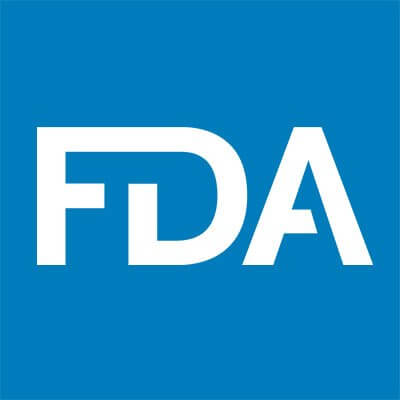
Early and Cost-Effective Identification of Samples Potentially Containing the B.1.1.7 or Other Variants May Help Reduce Further Spread of Infection
STONY BROOK, N.Y. January 8, 2021. Applied DNA Sciences, Inc. (NASDAQ: APDN) (the “Company”), a leader in Polymerase Chain Reaction (PCR)-based DNA manufacturing, announced today that the U.S. Food and Drug Administration (FDA) published a safety communication (the “Communication”) that identifies the Company’s Linea™ COVID-19 Assay Kit (the “Assay Kit”) as one of only two tests marketed under the FDA’s Emergency Use Authorization (EUA) that are potentially able to identify certain SARS-CoV-2 mutations, including a mutation found in the U.K. variant of SARS-CoV-2 (B.1.1.7). According to recent publications, the B.1.1.7 variant has been identified within the United States and may be associated with an increased risk of transmission of the virus that causes COVID-19. The identification of certain mutations can help identify samples that should be further characterized via genetic sequencing and can potentially assist with the early detection of new variants in patients, which may reduce further spread of infection.
The full text of the Communication is accessible on the official FDA website.
According to the Communication, the FDA monitors the potential effects of genetic variation on molecular tests that have received EUA, including the Company’s Assay Kit. The Communication notes that molecular tests designed to detect multiple SARS-CoV-2 genetic targets, such as the Assay Kit, are less susceptible to the effects of genetic variation than tests designed to detect a single genetic target. Based on analysis conducted by the Company and FDA, one of the two S-gene targets (S1 and S2) of the Assay Kit has significantly reduced sensitivity in the presence of certain S-gene mutations, including a mutation found in the B.1.1.7 variant. The Communication notes that the reduced sensitivity, also known as an S-gene dropout, may be indicative of certain SARS-CoV-2 mutations, including the B.1.1.7 variant. Due to the Assay Kit’s multi-target design, the Communication states the Assay Kit’s overall sensitivity should not be impacted.
“Our ability to potentially identify certain variants of SARS-CoV-2 is grounded in the multi-target design of our assay that mitigates the impact of a mutation to the S-gene on test sensitivity. We believe our Assay Kit can give public health officials and diagnostic laboratories a fast and cost-efficient tool – whether through diagnostic or pooled surveillance testing – with which to potentially identify and track B.1.1.7 spread that is made all the more challenging by the variant’s apparent transmission advantage,” said Dr. James A. Hayward, president and CEO, Applied DNA. “Using our Assay Kit, we have already identified variants of SARS-CoV-2 via S-gene dropout, sequenced the identified variants with partners and identified common genetic progenitors that are shared by B.1.1.7 and other emerging SARS-CoV-2 variants. Utilizing this knowledge, we have begun to develop new assays to detect specific mutations in SARS-CoV-2 and to adapt our assay to address the evolving SARS-CoV-2 threat.”
About the Linea™ COVID-19 Assay Kit and Pooled Surveillance Testing
The Linea™ COVID-19 Assay Kit is authorized by FDA EUA for the qualitative detection of nucleic acid from SARS-CoV-2 in respiratory specimens, including anterior nasal swabs, self-collected at a healthcare location or collected by a healthcare worker, and nasopharyngeal and oropharyngeal swabs, mid-turbinate nasal swabs, nasopharyngeal washes/aspirates or nasal aspirates, and bronchoalveolar lavage (BAL) specimens collected by a healthcare worker from individuals who are suspected of COVID-19 by their healthcare provider. The scope of the Linea™ COVID-19 Assay Kit EUA, as amended, is expressly limited to use consistent with the Instructions for Use by authorized laboratories, certified under the Clinical Laboratory Improvement Amendments of 1988 (CLIA) to perform high complexity tests. The EUA will be effective until the declaration that circumstances exist justifying the authorization of the emergency use of in vitro diagnostics for detection and/or diagnosis of COVID-19 is terminated or until the EUA’s prior termination or revocation. The diagnostic kit has not been FDA cleared or approved, and the EUA’s limited authorization is only for the detection of nucleic acid from SARS-CoV-2, not for any other viruses or pathogens.The Company is offering surveillance testing in compliance with current CDC, FDA, and CMS guidances. The use of saliva and pooled sampling for surveillance testing, which has been internally validated by the Company in compliance with current surveillance testing guidances, is not included in the Company’s EUA authorization for the Linea™ COVID-19 Assay Kit.
About Applied DNA Sciences
Applied DNA is a provider of molecular technologies that enable supply chain security, anti-counterfeiting and anti-theft technology, product genotyping, and pre-clinical nucleic acid-based therapeutic drug candidates.
Visit adnas.com for more information. Follow us on Twitter and LinkedIn. Join our mailing list.
The Company’s common stock is listed on NASDAQ under ticker symbol ‘APDN’, and its publicly traded warrants are listed on OTC under ticker symbol ‘APPDW’.
Applied DNA is a member of the Russell Microcap® Index.
Forward-Looking Statements
The statements made by Applied DNA in this press release may be “forward-looking” in nature within the meaning of Section 27A of the Securities Act of 1933, Section 21E of the Securities Exchange Act of 1934 and the Private Securities Litigation Reform Act of 1995. Forward-looking statements describe Applied DNA’s future plans, projections, strategies, and expectations, and are based on assumptions and involve a number of risks and uncertainties, many of which are beyond the control of Applied DNA. Actual results could differ materially from those projected due to its history of net losses, limited financial resources, limited market acceptance, the possibility that the assay kit could become obsolete or have its utility diminished, the uncertainties inherent in research and development, future clinical data and analysis, including whether any of Applied DNA’s or its partner’s diagnostic candidates will advance further in the preclinical research or clinical trial process, including receiving clearance from the U.S. Food and Drug Administration (U.S. FDA) or equivalent foreign regulatory agencies to conduct clinical trials and whether and when, if at all, they will receive final approval from the U.S. FDA or equivalent foreign regulatory agencies, the unknown outcome of any applications or requests to U.S. FDA, equivalent foreign regulatory agencies and/or the New York State Department of Health, the unknown limited duration of any Emergency Use Authorization (EUA) approval from U.S. FDA, changes in guidances promulgated by the CDC, U.S. FDA and/or CMS relating to COVID-19 surveillance and diagnostic testing, disruptions in the supply of raw materials and supplies, and various other factors detailed from time to time in Applied DNA’s SEC reports and filings, including our Annual Report on Form 10-K filed on December 17, 2020, and other reports we file with the SEC, which are available at www.sec.gov. Applied DNA undertakes no obligation to update publicly any forward-looking statements to reflect new information, events, or circumstances after the date hereof or to reflect the occurrence of unanticipated events, unless otherwise required by law.
Investor contact: Sanjay M. Hurry, Applied DNA Sciences,917-733-5573, sanjay.hurry@adnas.com
Program contact: Mike Munzer, Applied DNA Sciences, 631-240-8814, mike.munzer@adnas.com


